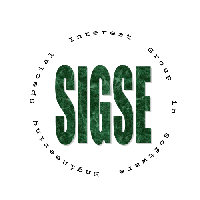Workshop: Quality in Requirements
Requirements engineering (RE) is one of the first activities in a software development process; all subsequent steps of development being directly or indirectly influenced by them. Without a clear and shared understanding of requirements, effort is wasted. Delivered functions in a software product must match user needs; many information systems fail due to weaknesses in the RE methods used such as analysis, validation and management. And when a completed software product is modified to incorporate late-understood user requirements, effort and cost overruns explode. This illustrates the importance of quality in requirements engineering, and the value of detecting defects in requirements as early as possible.
The goal of this workshop is to advance quality in requirements by answering some of the following questions and additional ones proposed by participants:
- What are critical lessons learned or requirements problems experienced in practice that provide motivation for improving requirements quaity?
- What are techniques and tools that help assure complete and accurate requirements?
- What are effective measures of the quality of requirements, and how early in the development cycle can meaningful values for these measures be determined?
- How do we determine the Return on Investment (ROI) of improving the quality of requirements?
Topics include:
- Critical lessons learned or requirements problems experienced
- Requirements quality metrics (Ms. Prateeti Mohapatra)
- Process Initiatives and tools for assuring complete and accurate requirements (Dr. Samuel Keene)
- Calcuating the ROI of requirements quality improvement (Mr. Mayank Gupta)
The Participant Solicitation
This workshop will be open to all interested parties. Participants may optionally submit a 2-4 page short position paper or a poster. Position papers should propose a specific question, related to the workshop description, which they would like to have addressed in the workshop.
Workshop Organization
The workshop will be highly interactive and focused on the sharing of ideas and on progressing towards a shared vision. The discussions will be carried out by raising and debating open questions and research priorities. The workshop will follow the following format (4 hours):
- Round of introductions (30 min max).
- Organizer presentations (15 min each), followed by foundation information sharing and initial discussion (60 minutes max).
- BREAK - (15-30 min)
- Participants: Discussion of Posters.
- Organizers: Building the list of questions (from above and from the submitted position papers) on flip charts.
- Participant voting (e.g. with dots) to choose the top N questions (15 min).
- Small group discussions by participants, with a different quesiton assigned to each group(45-60 min).
- Readout by each group to the whole workshop (30 min).
- Next steps/workshop conclusion.
Workshop Results Reporting
At the end of the workshop, each workgroup will report its results. The following power point template helps structure the results and report them them. Workshop Results Reporting Template
Summary of the workshop (along with copies of the organizer presentations, submitted papers and posters), will be provided to participants afterwards.
Target Audience
Practicioners or researchers interested in requirements quality and its effect on product quality.
Length Half Day
Workshop Organizers
- Prateeti Mohapatra, ABB, India, (prateeti . mohapatra at in . abb . com)
- Will Snipes, ABB, USA (will . snipes at us . abb . com)
- Sam Keene, Keene and Associates, USA (keenesam at gmail . com)
- Mayank Gupta, Infosys, India (mayank_gupta at infosys . com)







